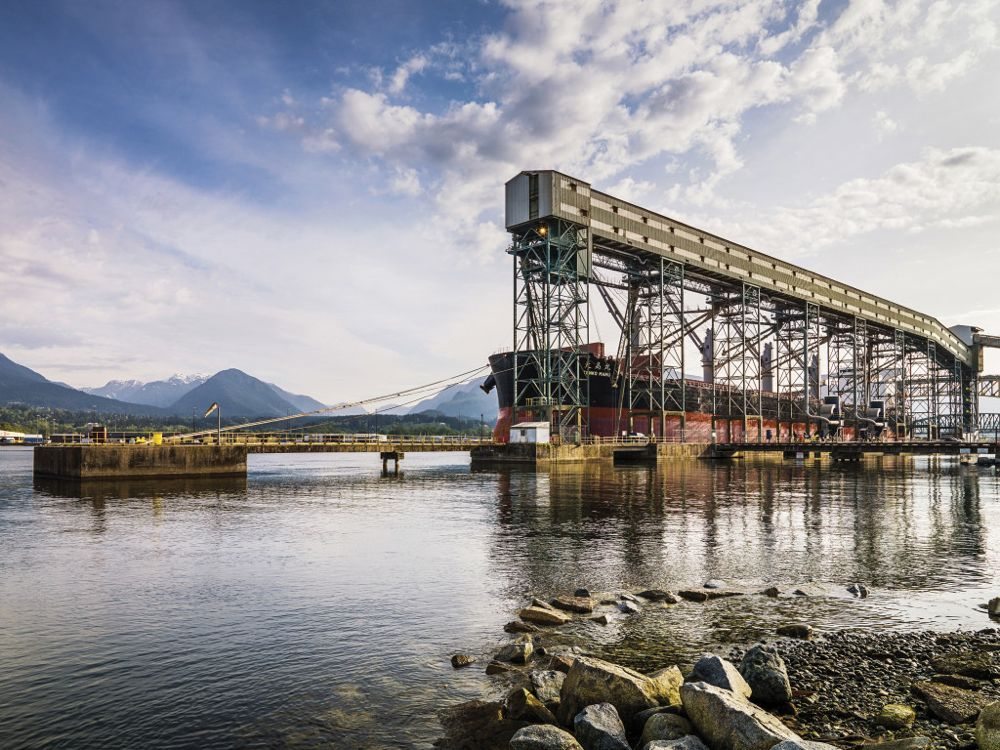Large number of vessels waiting to load at West Coast
| 2 min read

(PortMetroVancouver.com)
CNS Canada — A large backlog of ships is waiting to load grain at Canada’s West Coast due to a combination of poor weather, early arrivals and railroad logistical issues.
The Port of Vancouver lineup included 26 vessels as of Tuesday, according to the latest weekly report from the federal Grain Monitoring Program administered by the Quorum Corporation. That compares with the current one-year average of 18 vessels.
“Even 18 is still high,” said Mark Hemmes, president of Quorum Corp., noting there are six berths and 14 anchorages at the port. “That says the grain industry is using up everything, and then some.”
Of the boats currently waiting at Vancouver, Hemmes described six as “really old,” with 12 there for over three weeks.
The current vessel lineup at Prince Rupert, Canada’s other West Coast port, sat Tuesday at six — also well above average.
Some of the boats likely arrived a few weeks early and are now waiting for grain, said Hemmes. On top of that, adverse weather prevented loading with heavy rains and snow even causing problems for people getting to work.
“They had a few days where they just couldn’t load vessels,” said Hemmes.
In addition, logistical issues on the south shore in the fall were fixed, but “now they’re playing catch-up,” said Hemmes.
On top of that, allocation problems in the countryside were causing some problems getting grain where it needs to be in the sequence that matches what the boats are looking for.
Even with the problems and resulting delays, “it’s not a panic, because grain is still moving fairly well,” said Hemmes.
Other ports along the West Coast in the U.S. and Canada face similar challenges this year, with heavy snowpack in the southern Rocky Mountains causing rail delays.
Only Canadian National Railway (CN), with the most northern route, was relatively unscathed, Hemmes said.
The large vessel line-up and rising demurrage costs would likely work their way back to basis levels in the Prairies, he said — a possible saving grace being very low ocean freight rates.
“The crisis in the dry bulk marine business really works to the advantage of anyone who ships bulk products out of North America,” he said.
“We’ve never seen rates as low as we’ve seen the last couple of years… It dulls the pain (of the loading delays) and provides huge opportunities for Canada.”
— Phil Franz-Warkentin writes for Commodity News Service Canada, a Winnipeg company specializing in grain and commodity market reporting. Follow Phil at @philfw on Twitter.


